In the magic and mind-blowing scenario of a morning Venice, as comfortable in his beloved linen clothes as to genuinely open up about his cinema and lifetime passions, Joshua Close was the best and most chill chat we could wish for on our hectic Venice Film Festival journey.
His “simple yet elegant” performance of Paul in the film “Monica”, by Andrea Pallaoro, was one of the keys to the immense power of this story, and a life-changing experience for Joshua. Of our inspiring and fun chat about the importance of a visionary team to put on screen the most authentic story, one thing has particularly stuck in my mind and memories: the evidence of how fed we are with words and voices, both in cinema and in real life.
But “Monica” tells a whole other kind of story, which lets images, gestures, looks, and music take the place of unnecessary dialogues. As it should, sometimes, be in life, too: how nice would it be if we all just danced it off to reconquer our bodies?
“Monica” left me heartbroken, but also extremely hopeful: I appreciated the way the themes of gender transition but also cancer have been developed and unveiled slowly, no one has done something like that before. What was your first reaction when you read the script?
My first reaction was to notice how little dialogue there was.
It’s so rare to read something that doesn’t need to overexplain what’s happening, it involves the audience on a level that I don’t think we’re accustomed to anymore because I think we’re accustomed to being more fed, generally speaking. What stood out to me and what I loved the “most is how simple yet elegant the script was. I’d seen Andrea [Pallaoro]’s work before, so, when I read it, I had his visual and aesthetic in mind, and those two things combined got me really excited.
When I read Paul, my character, what struck me about him was his reaction to his sister coming home after so many years, I thought it was such an evolved reaction. I’m so tired of the transphobia and all this fucking judgment in the world that we have, so Paul’s reaction to me was something that I felt inspired by and connected to – it was empathy and curiosity and protection, and I really related to those three things and felt it was an intelligent way for him to react. Andrea would push that all the time, he wanted it to be a really conflicted struggle, without judgment, and that to me was something really exciting to think about, challenge myself with, and play. So, I immediately called my agent, saying, “Please, please let me get into this!” [laughs] This is what I’d been looking for, this is the type of film I believe in, so I started my little campaign to try and be in it.
Do you remember something you asked yourself before filming or a question you asked Andrea about the movie?
That’s a good point.
I think I just showered Andrea with how much I loved “Hannah” and “Medea”, his past films, but it was actually fewer questions and more discussion between us, I wanted to hear what he was feeling and thinking, and where he pulled Paul from, if he was somebody in his life or someone he knew, and what kept Paul from telling his mother who his sister was throughout the film, and what created this need to protect her from the truth and give Monica, Trace [Lysette]’s character, the opportunity to do it herself.
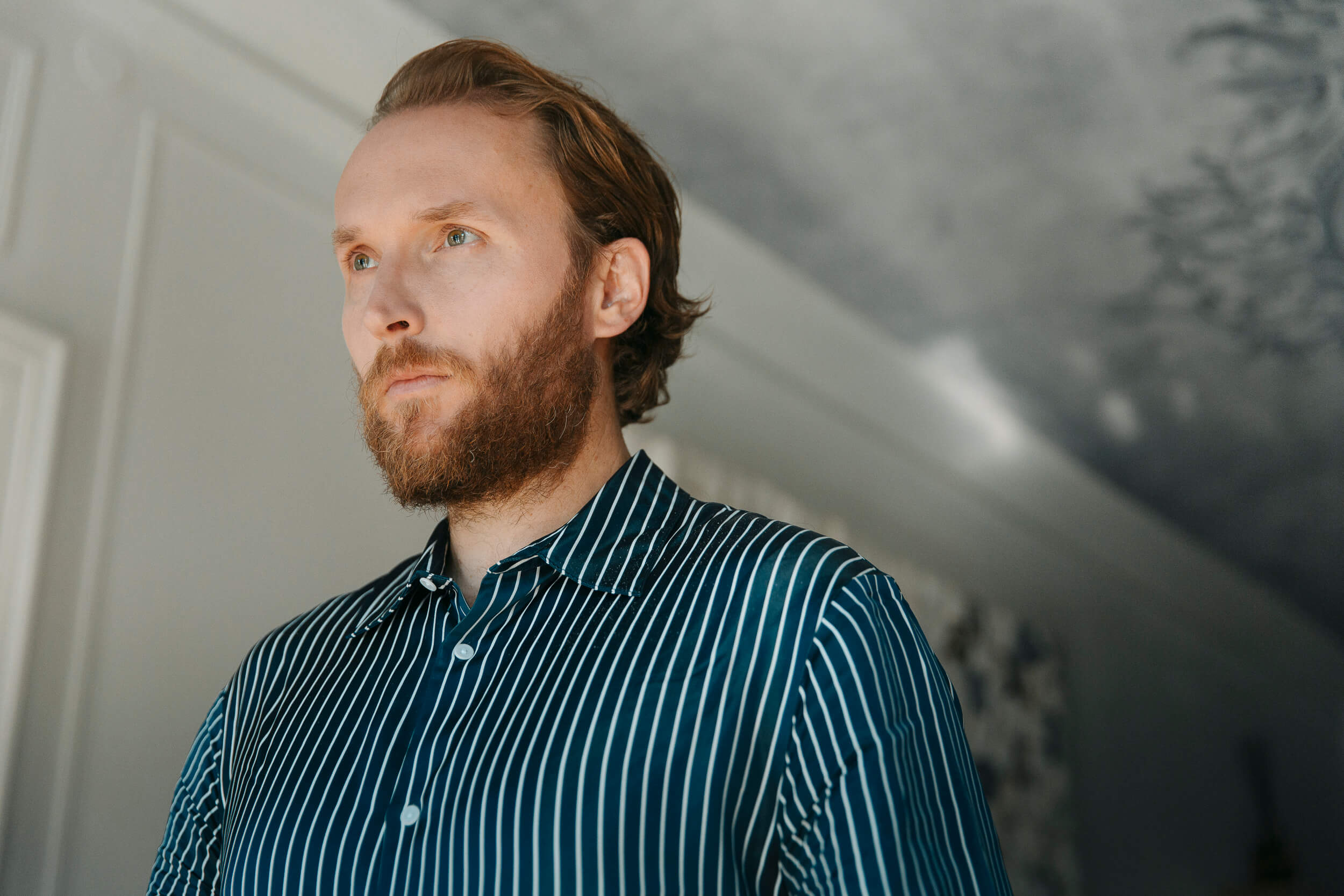
Your character, Paul, is quite a shy person who clearly wants to reconcile with his sibling and include her again in their broken family: did you work on your character with a more rational or emotional approach?
As an actor, I go home, read the script 200 times and try to visualize what the character is going through and where they’re coming from and how the scenes are woven together, and then I ask myself questions like, “Why is this scene in the movie? How is it helping the journey?”. That’s how I start weighing it.
This time, I would say I adopted an emotional approach because I prepared all these moments that I wanted to present, and then, when I got there on set, I understood that Andrea is really interested in the characters experiencing the moments as opposed to trying and act the moment or perform a moment, it seems to be one of his main intentions to create that feeling of catharsis; so, all my choices, as I prepared to when I went on set, dissolved into the very simplified thought “I need to be present for her and listen, and know why I’m here and what I want, and put her needs and my mother’s needs ahead of mine”. That’s something I really related to as an older brother and a guy who grew up with a single mother: to keep stress off of her, sometimes you sacrifice your own mental health, so I felt like Paul’s mental health was a little compromised by him withholding, which is something that I think a lot of men do, feeling this major responsibility to protect their mother at all costs. Any added stress that would add to her sickness and kill her was Paul’s biggest fear, but I think that, deep down, he has a hope that maybe she does heal from this; however, he still feels that the stress of Monica being home would be detrimental to her health and accelerate the whole thing. That kept me on my toes, I had to be careful about how to deal with this old world coming into the present world.
It is a struggle between the rational and emotional, constantly, where the emotions sometimes become too big and you can’t help but be emotional. For example, the scene where I’m recording my mother telling a story felt really rational to me because I’m doing it for the future. I find that grandparents so often live in every people’s memory because they pass when we’re young, so to give Paul’s kids the gift of that memory was something very rational for him, something very strategic.
“I felt like Paul’s mental health was a little compromised by him withholding, which is something that I think a lot of men do…”
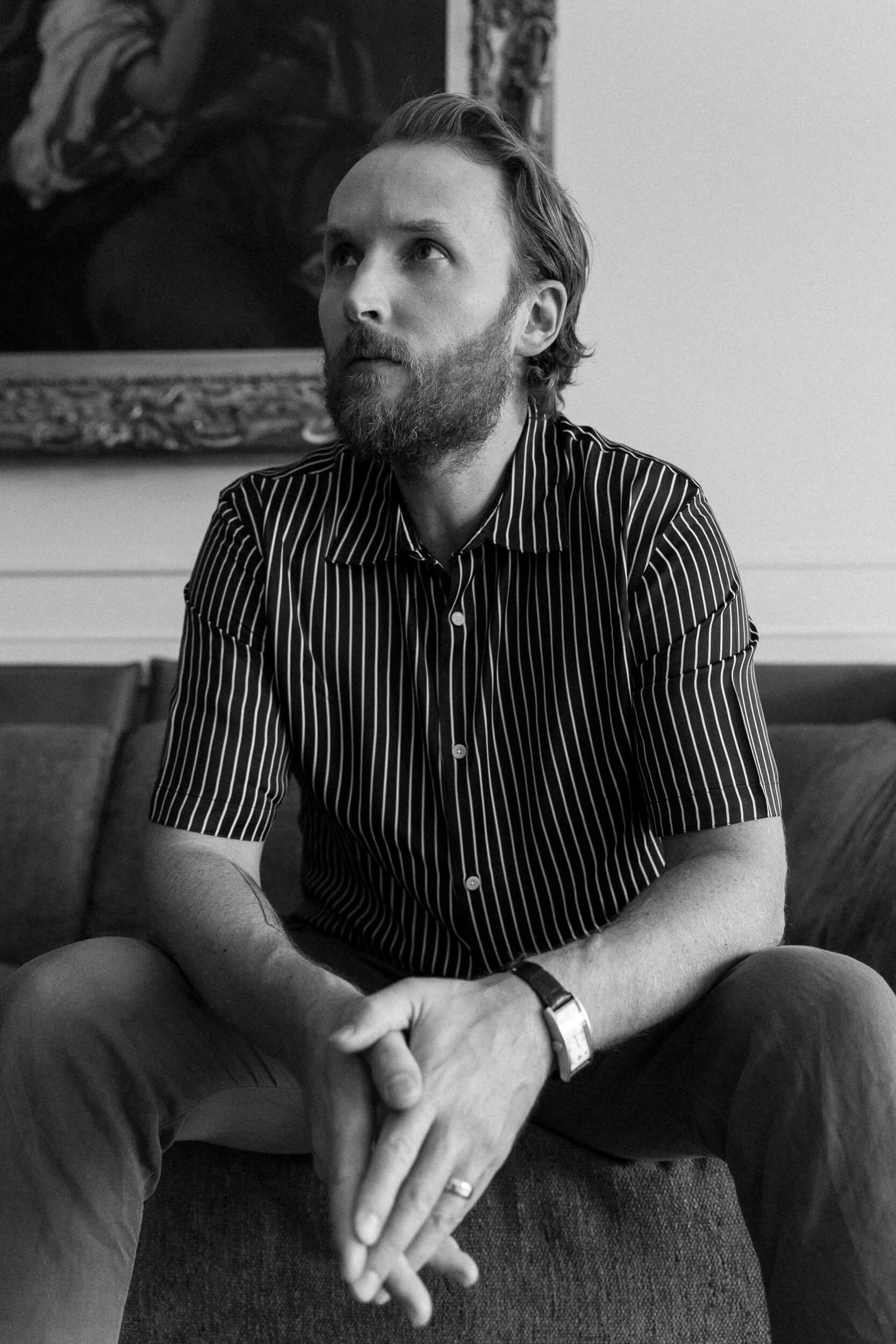
Did you discover anything new about yourself while studying Paul?
For me, the biggest thing is what Andrea keeps doing, and I just adore him, I think he’s one the most intelligent filmmakers we have, I genuinely believe that – I think he reinforces the idea of how smart people are and how much they can pick up of very intelligent but very simplified scenes.
You know, a gesture can mean something so big, a look can do so much, and for me, playing Paul and being involved in this film reinforced how much I love and appreciate that with storytellers and filmmakers like Andrea.
Paul brought up a lot of empathy in me and made me think about how I’ve dealt with my own mother-in-law’s passing in a very similar way, watching her body give out and then eventually move on to another place or nothing or whatever you believe. I had this amazing advice from an acting coach who once said, “Think about your characters like this: wonder what they believe happens after people die and come at it from that” because some characters would believe nothing happens, some characters would believe you’d become plants or animals, or you’d go to Heaven or things like that.
What does Paul believe in?
I think he doesn’t believe in Heaven or the clouds. I thought about this a lot and I think he believes in something like an energy transfer, I think he believes we go somewhere that’s not very specific – it could be a coyote running through the garbage cans, maybe that’s where Paul would end up, he’d become a trash-eater! [laughs]
Actually, I think he’s a better person, so maybe better karma is coming his way, who knows?
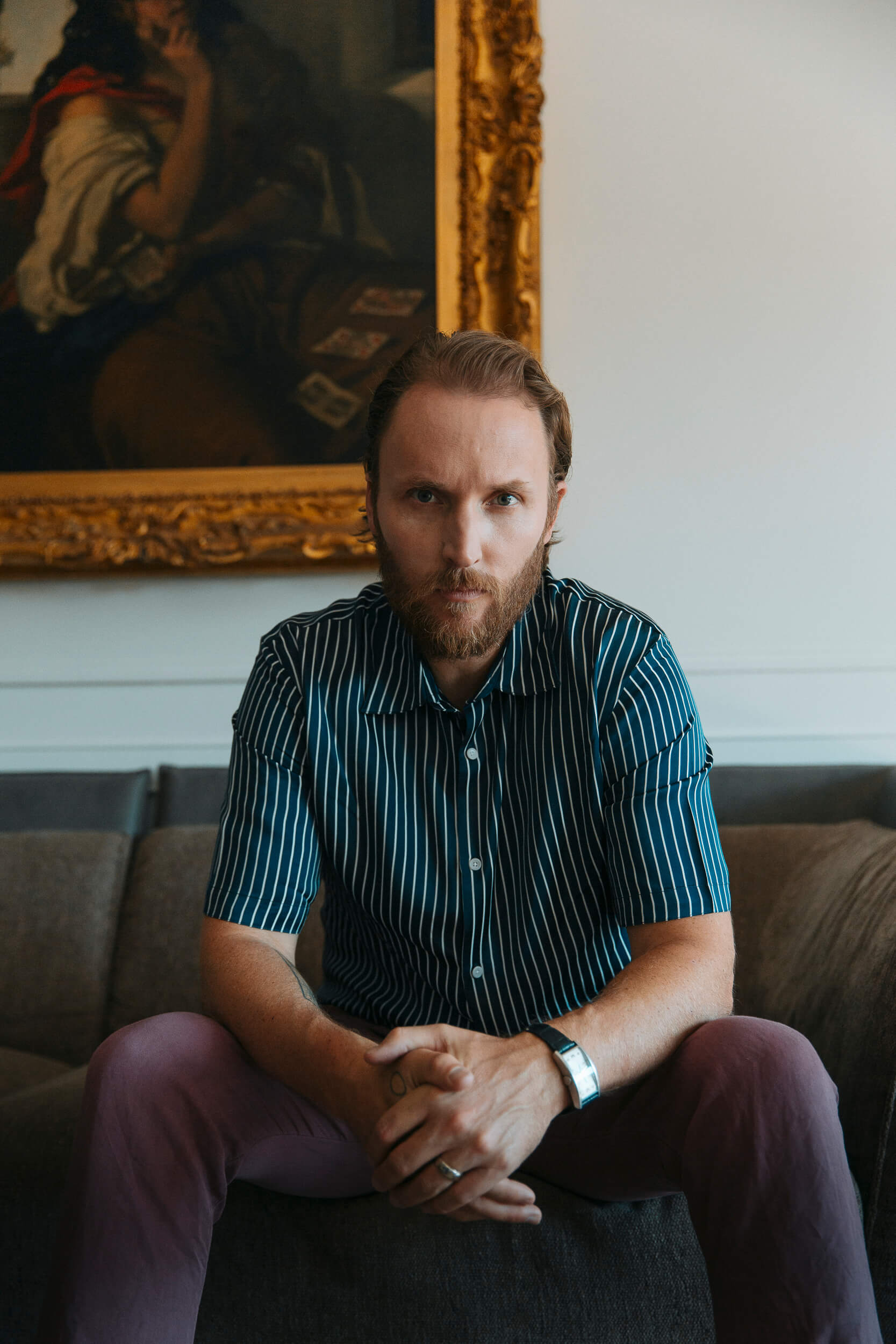
In the hardest moments, music blasts, usually from Monica’s radio in the car, and chills the atmosphere or sometimes emphasizes it. Do you find music to be healing in any way? What is it that helps you cope with the hardest moments of your life?
I find music to be one of the most healing elements and also one of the biggest bridges for every culture.
We don’t need to talk to one another if we listen to international music from anywhere in the world, and I think all of us can pick up on a vibe and feeling and move to it and connect over it. I appreciated the way Andrea used music. Specifically, Trace’s dance scene is so brilliant, the placement of it is perfect, and she’s so good at it, showing how much she needed to get free and back into her body.
I often find myself thinking about how much time we all spend in our heads, and what the things that we do to get back in our bodies are. For Andrea, that’s just stopping the plot and taking the time to be with the character, trying to get back into her body because she’s a heavy mess and it’s all crumbling down on her and her mother – she’s got a very short window for forgiveness and redemption. To throw a musical sequence in there makes it all so profound and real, and in the premiere, I could tell that people were moved. Andrea used music in a way that felt very real and very authentic, not trying to make us feel things with the score, manipulate our feelings – which there’s nothing wrong with, I love a beautiful score, but I do feel like his lean into authenticity is uncompromising. I remember that on set I said to Andrea, “I think the most important thing to do is print what you feel is real, whatever that looks like and feels like”, and he said, “Joshua, of course, why would I ever print something that’s not real?”.
I use music for characters, as well, and try to pick different songs and different genres to get into a headspace. For me, smells and sounds are one of the quickest ways back into an emotion: music is the biggest bonding agent and connector, I think.
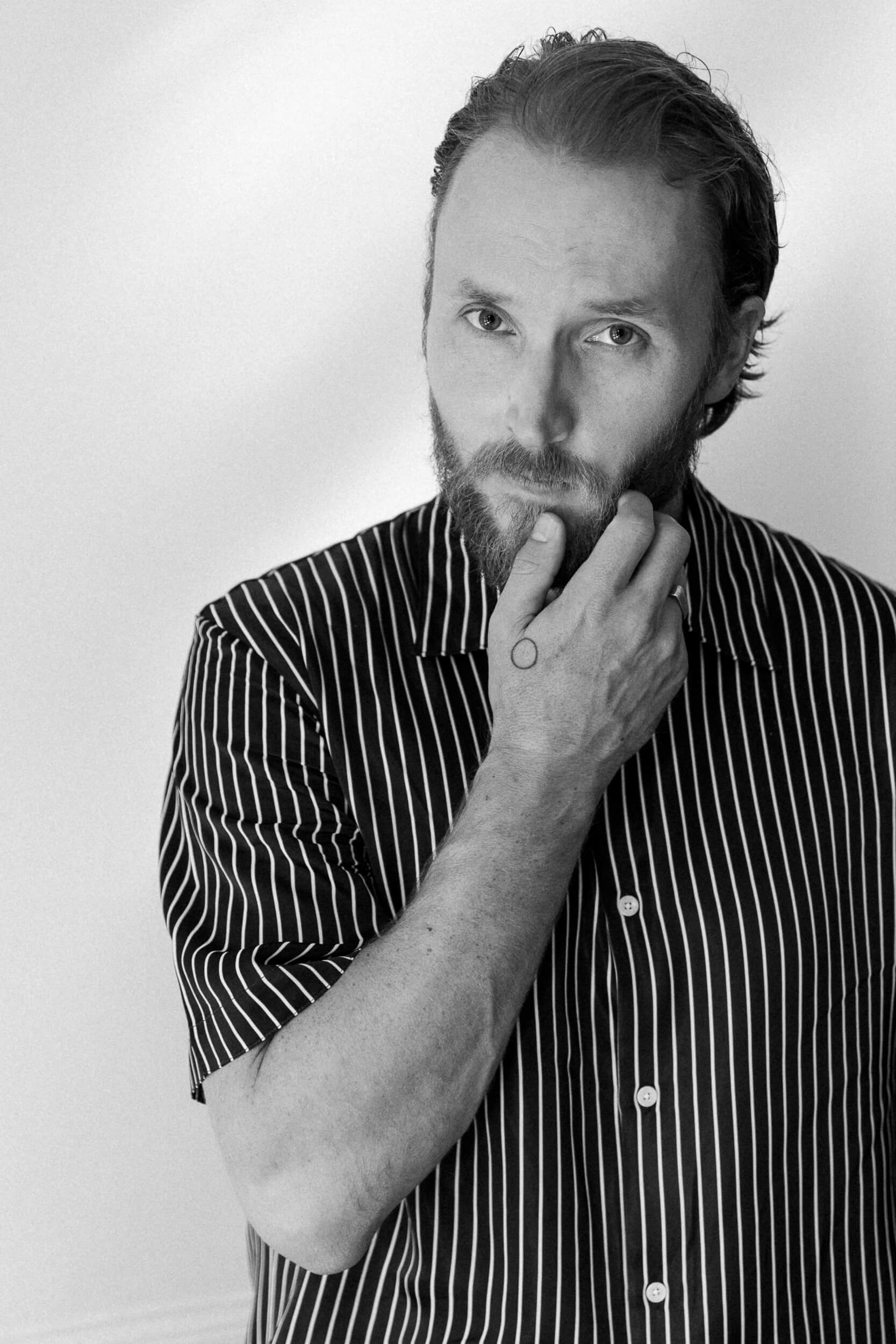
“I often find myself thinking about how much time we all spend in our heads, and what the things that we do to get back in our bodies are.”
What makes you say yes to a project, in general?
I’m 20 years into this, and I’ve been burned by directors with limitations that are really affecting the film and creating something that feels either forced or an idea of something that’s not fully realized or thought out in an intelligent and patient way, and it’s just words, tons of voices smashed onto the screen. I’m still at a point in my career where I’m building a little bit, but I’m getting more opportunities, which is nice, and I’ve been very lucky to work with some of the greatest directors, as well, and to see their process, so I’ve been spoiled. When picking a project, a visionary’s one of the most important things because I need to trust and feel open in order to be vulnerable.
Then, of course, the character – unless I really need to pay my mortgage, I don’t want to do a disservice to the projects, so if I feel like I can’t bring anything to the character, and if it’s not enough of a challenge, I won’t do it because I do think what makes it so exciting like this film is the challenge to be simple and authentic and present and to get out of your own way, and don’t let your choices and your ego get in the way. It’s enough to be present on the screen and people will understand, interpret and project, no matter what.
Also, the quality of dialogue is a big thing for me.
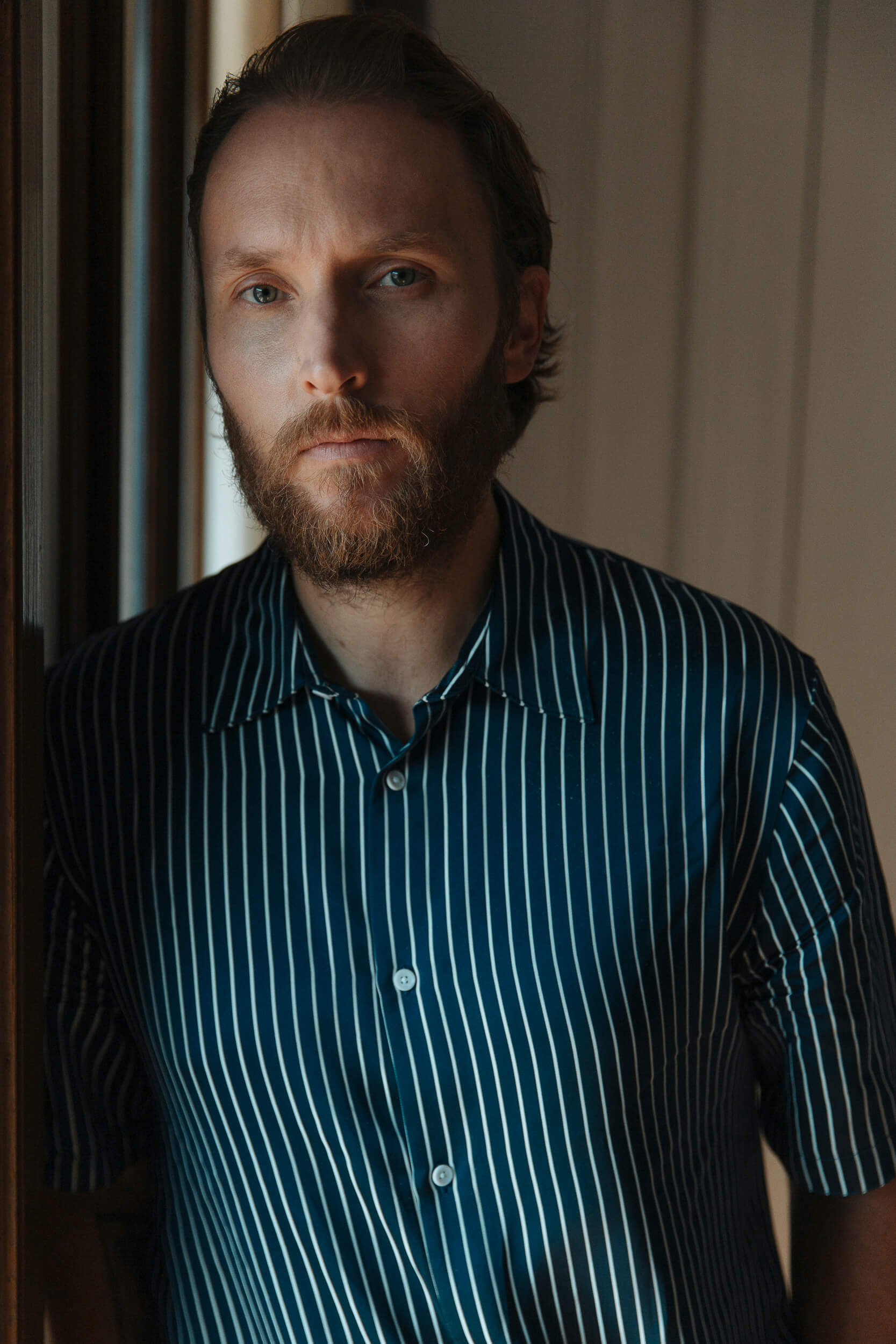
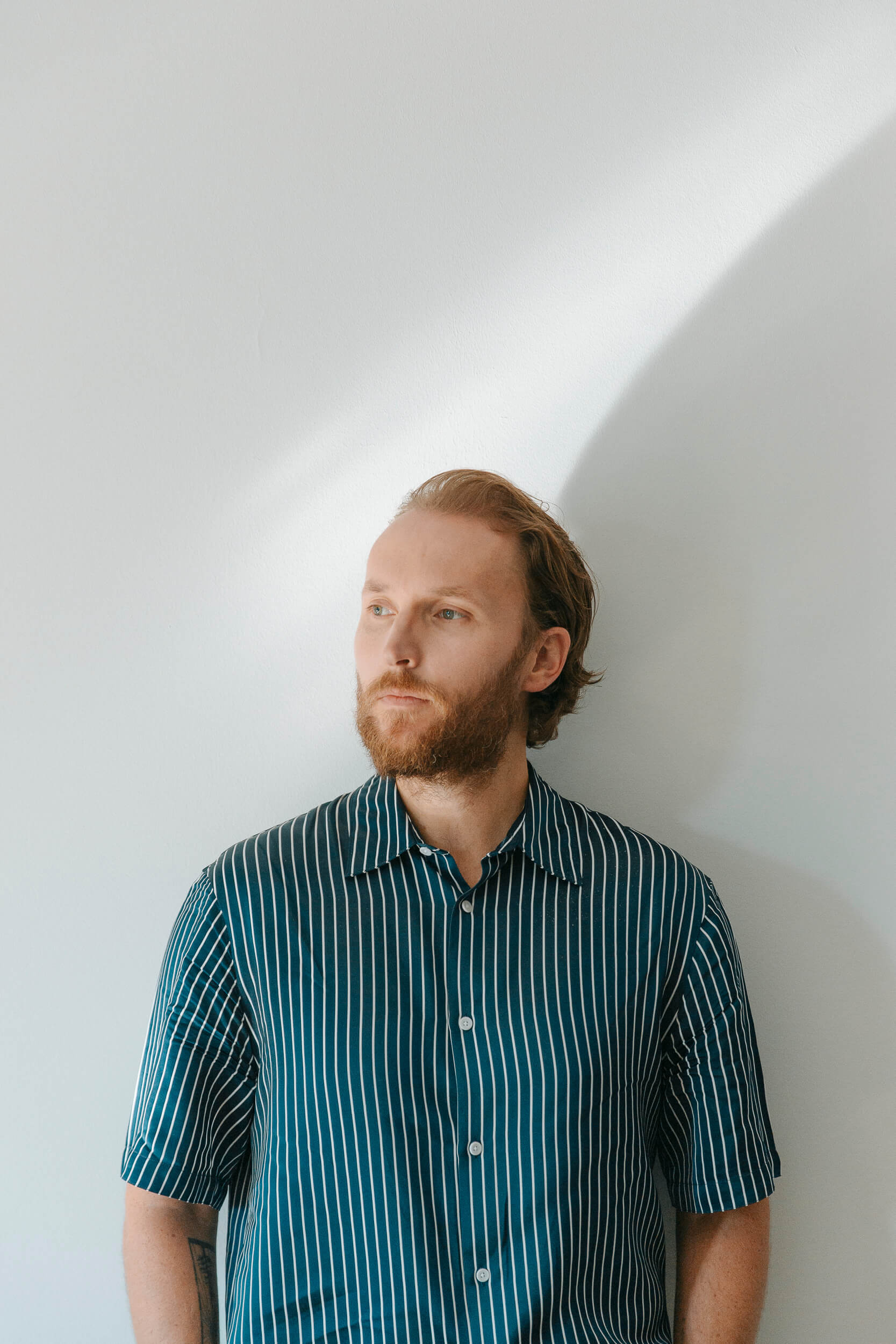
How and where do you find inspiration on the job and in your everyday life?
I’ve started painting, recently. Somebody once asked me what my hobbies were, and I got really sad because I realized I didn’t have any [laughs]. I realized all I did was try to tell great stories, but that’s work for me, so I thought that I needed to do something creative that wasn’t a job. Painting has become really freeing and inspiring for me, I’ve started to pay attention to different art forms, mediums, and painters, and see how they’re expressing themselves, and it’s informed my acting, it slowed me down. You know, I live in LA and it can be such a cultural wasteland in terms of the celebrity and the value of people, you feel like a racehorse sometimes, and I find all that stuff so uninspiring, and so, to balance it, I’m just trying to be as creative as possible every day.
I do write quite a bit, too, I’ve written a couple of films and shows, some in development, some made that I will never show anybody [laughs].
Obviously, also other artists are a main source of inspiration, people whom I admire greatly, visionaries like Paul Thomas Anderson, or Andrea Pallaoro, I love classic movies, so I go back and try to draw from those, like Melville, and Godard.
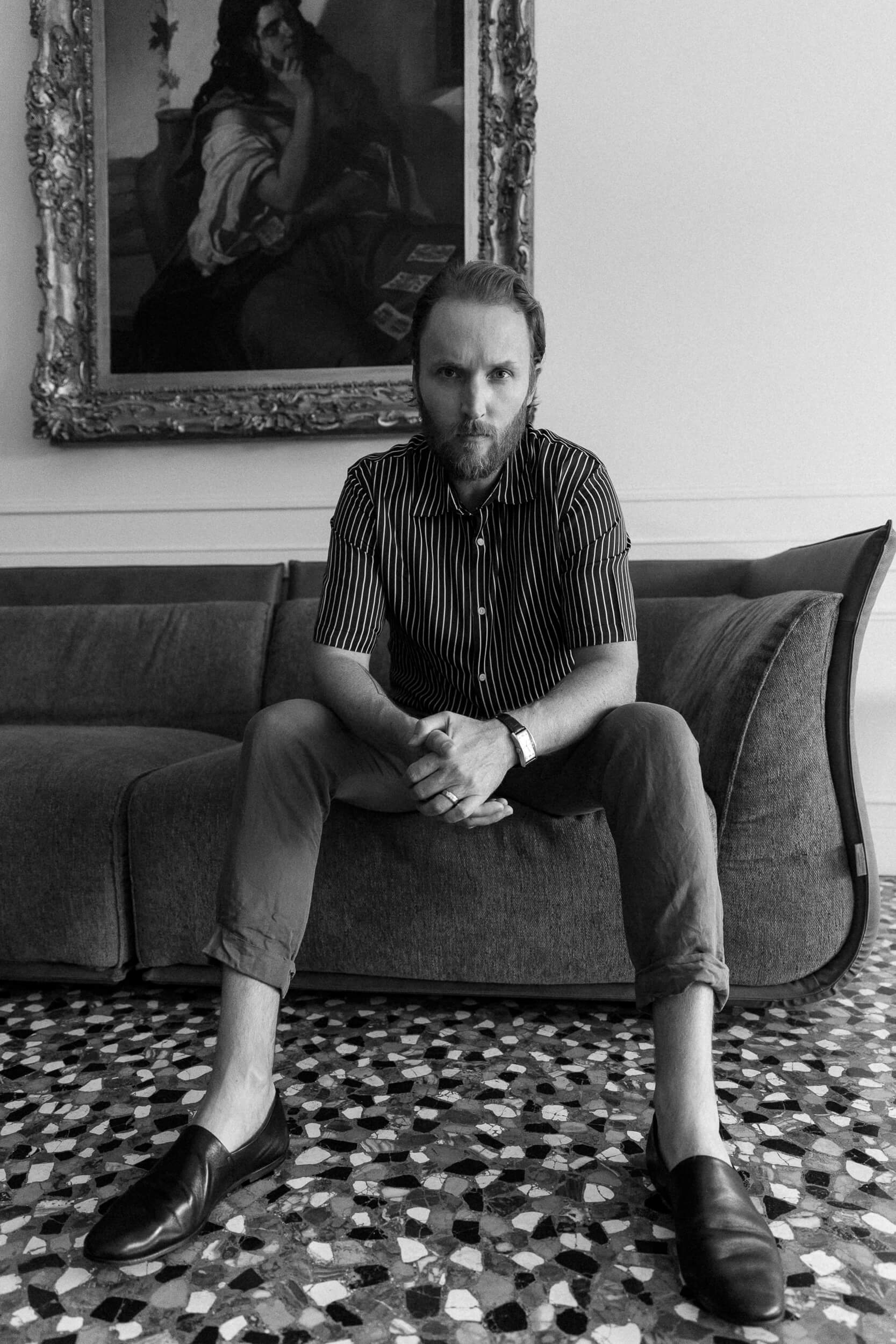
“I’m just trying to be as creative as possible every day.”
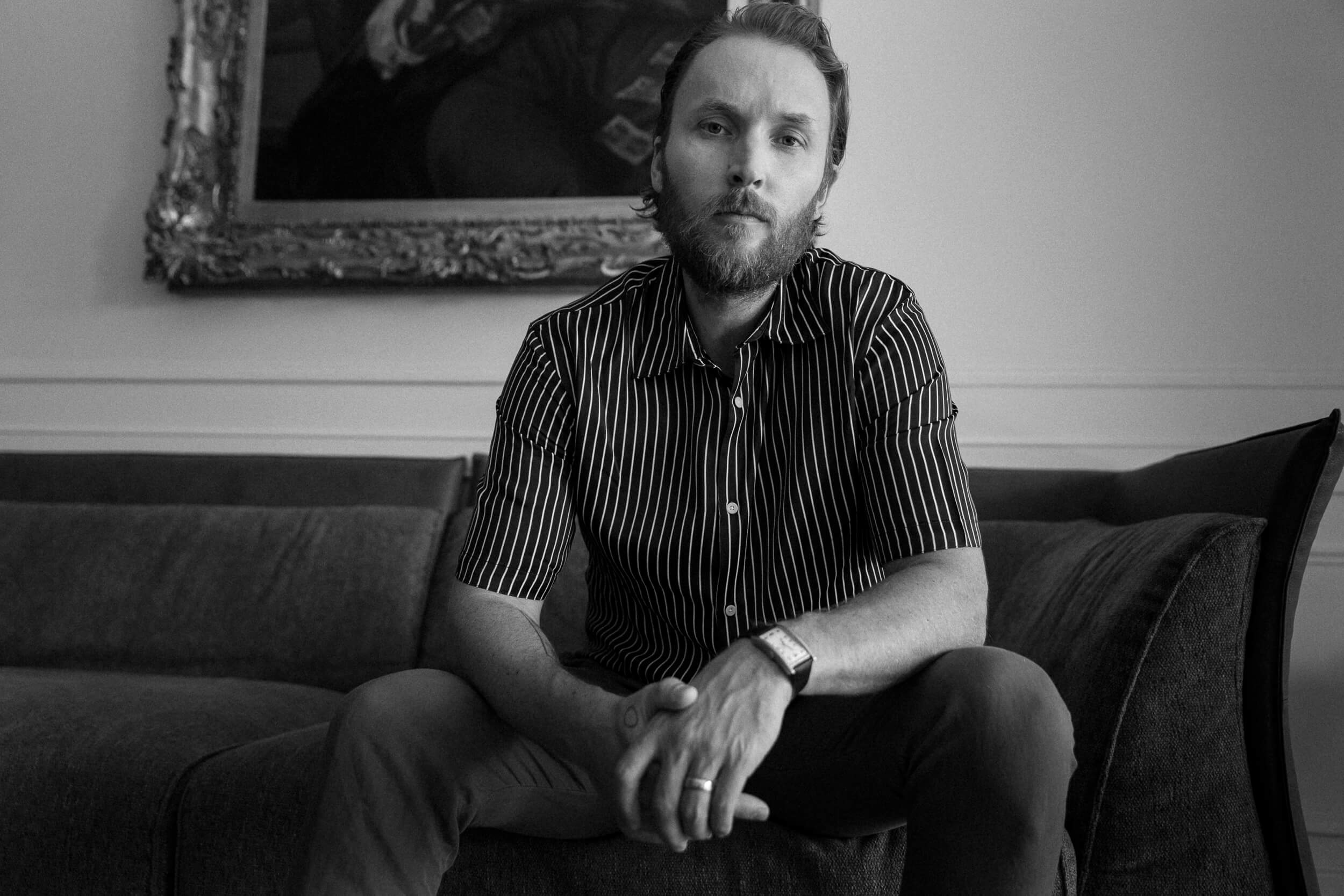
What is your favorite genre to play and the one to watch?
I’m a sucker for human drama!
And as we experience the triumph of action movies and horrors and comedies, I crave it more and more. I love films that are about people, I think there’s nothing more interesting than conflicts of the heart, I’m more interested in somebody’s internal conflicts than I am in somebody escaping a building before it explodes. I think the storytelling has become a little too situational-telling, with somebody just trying to escape or get over a situation. I appreciate filmmakers who know how to tell a good story about a human who’s just struggling for something, just like Monica, I think that’s profound and it binds people together.
Andrea’s film affected everybody so deeply and there’s no greater hope for a film than have that happen, and I think it happens mostly for me when watching drama.
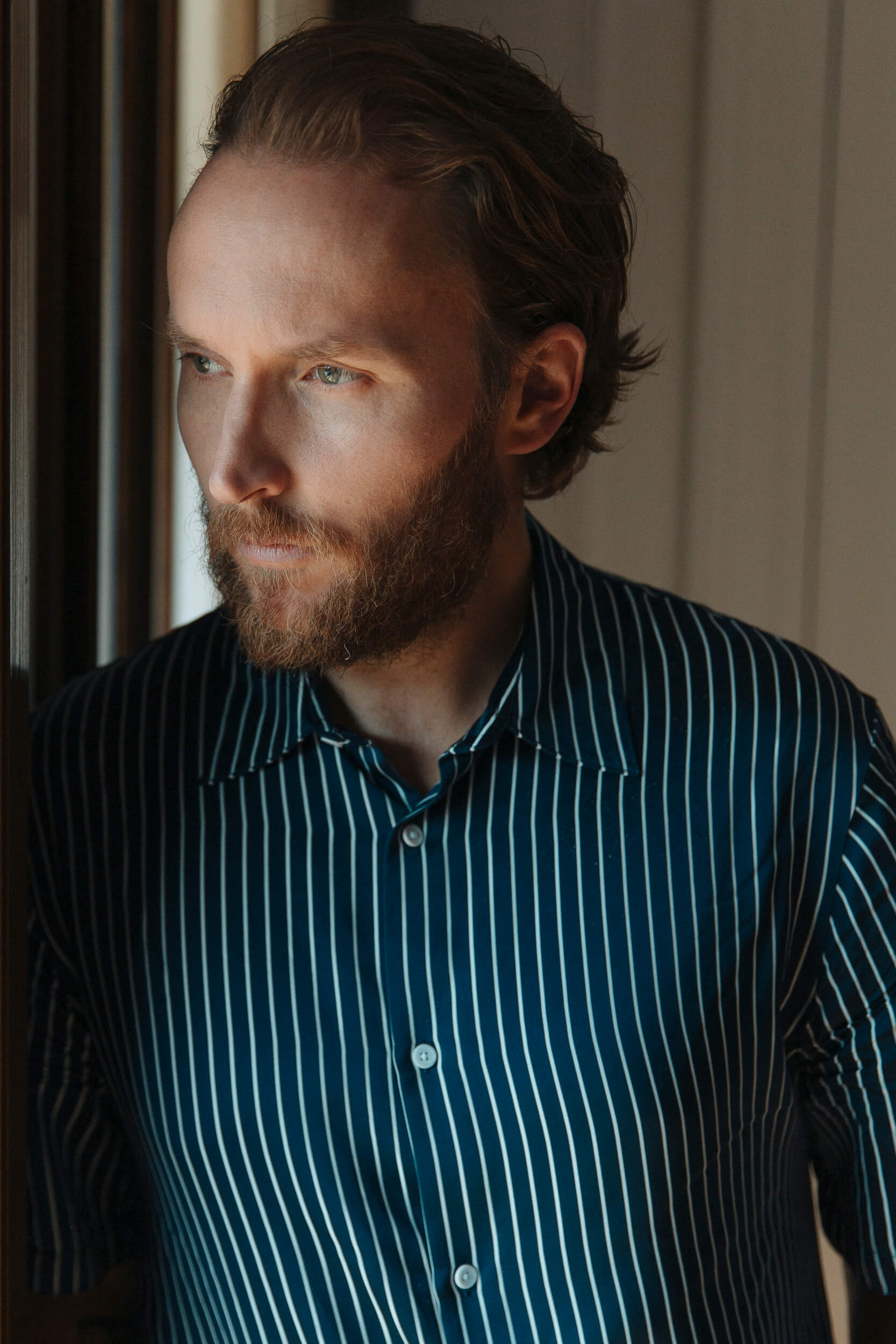
What’s your dream collaboration?
Andrea again, and then I think all of the greats like Jacques Audiard, Alejandro González Iñárritu, Sarah Polley. I’d love to work with Kathryn Bigelow and Paul Thomas Anderson again, I had small parts in their movies, but they had a very profound effect on me.
Your latest binge-watch?
A show called “The Bear”. It is a human drama and I think that all the actors in that show are next-level, insanely good, and so vulnerable, they’re clearly bringing everything they got to this world and you feel it, it flies through the screen. It reminded me of John Cassavetes and his messy and unhinged stories (he’s one of my favorite directors of all time).
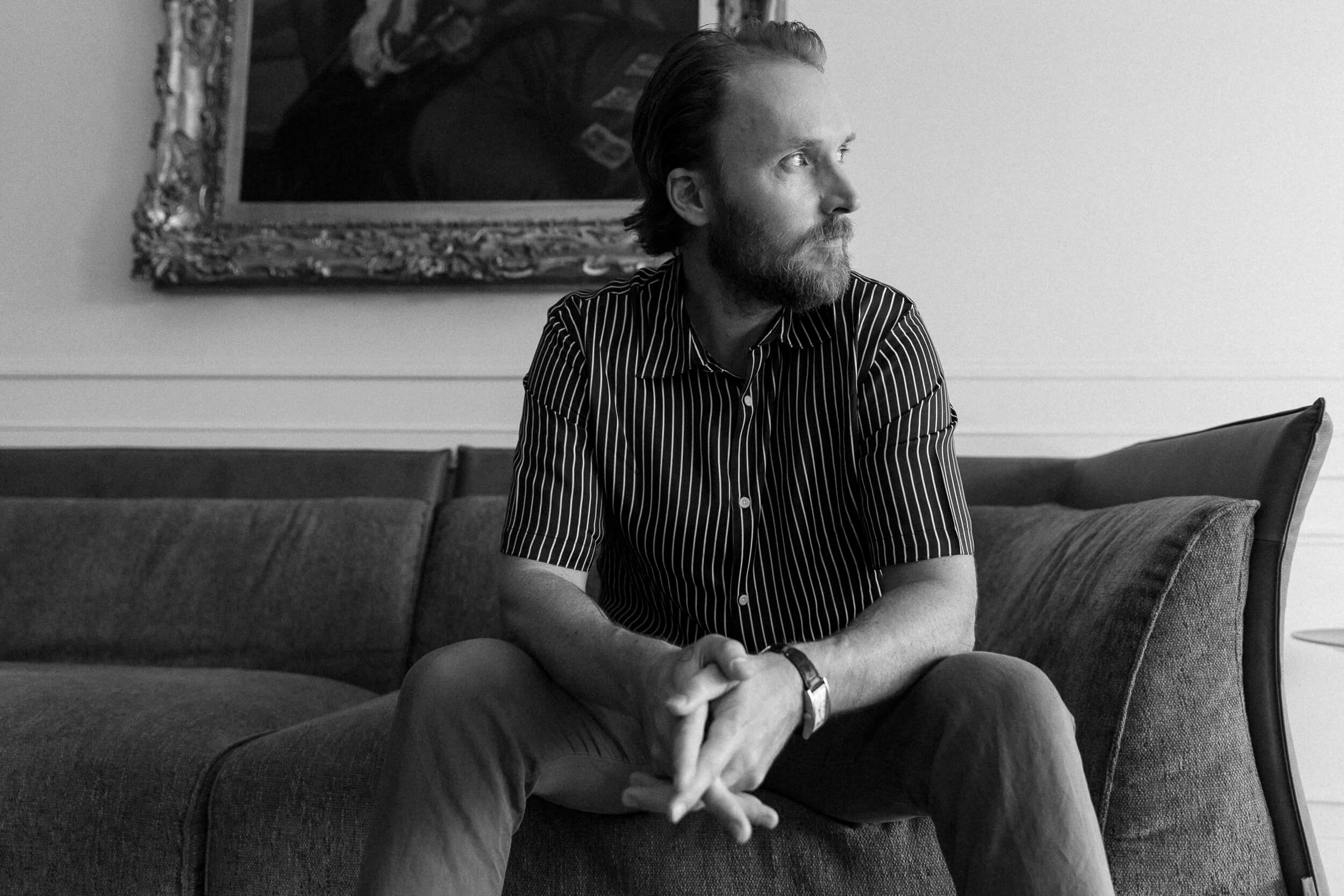
Your most remarkable act of rebellion?
I think I wasn’t a great teenager, I had some wild years of vandalism, but nothing major, nobody got hurt, I just remembered not dealing well with the divorce of my parents. Then, as I got into my teens, I got fascinated by Anti-Society, Rage Against the Machine, and Nirvana…and I think that was my biggest rebellious streak.
Also, from where I am from, I think being an actor was actually my biggest rebellion: my dad shed a tear when I told him I was going to be an actor because he was just so unfamiliar with the idea, but I wanted to be spontaneous, a little wild and colorful, to feel stimulated and inspired, and this was my way of doing that, and it still is embedded in me.
What’s your biggest fear?
Having a lot of regrets at the end of my life and not doing the things I wish I had the courage to do.
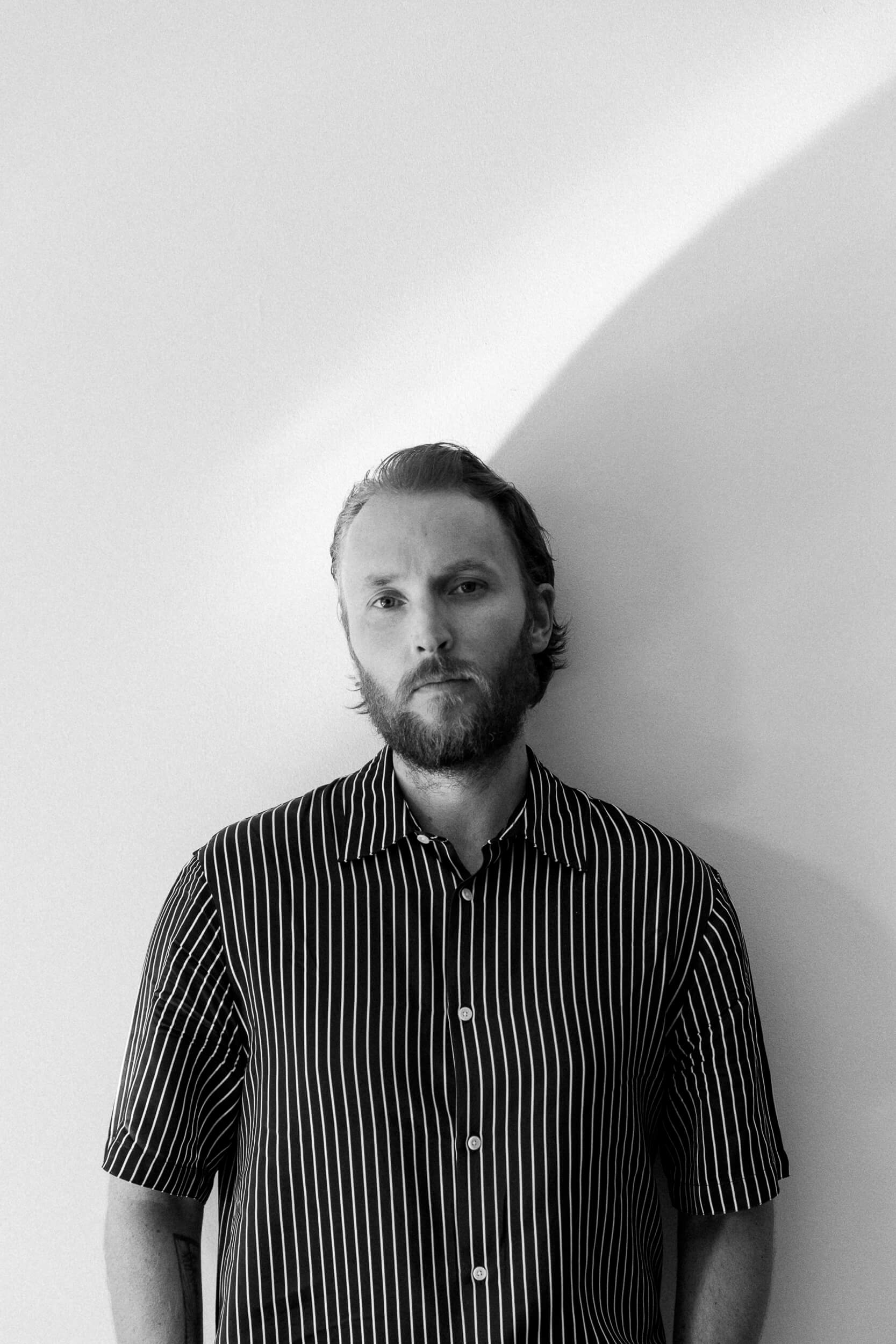
“I wanted to be spontaneous, a little wild and colorful…”
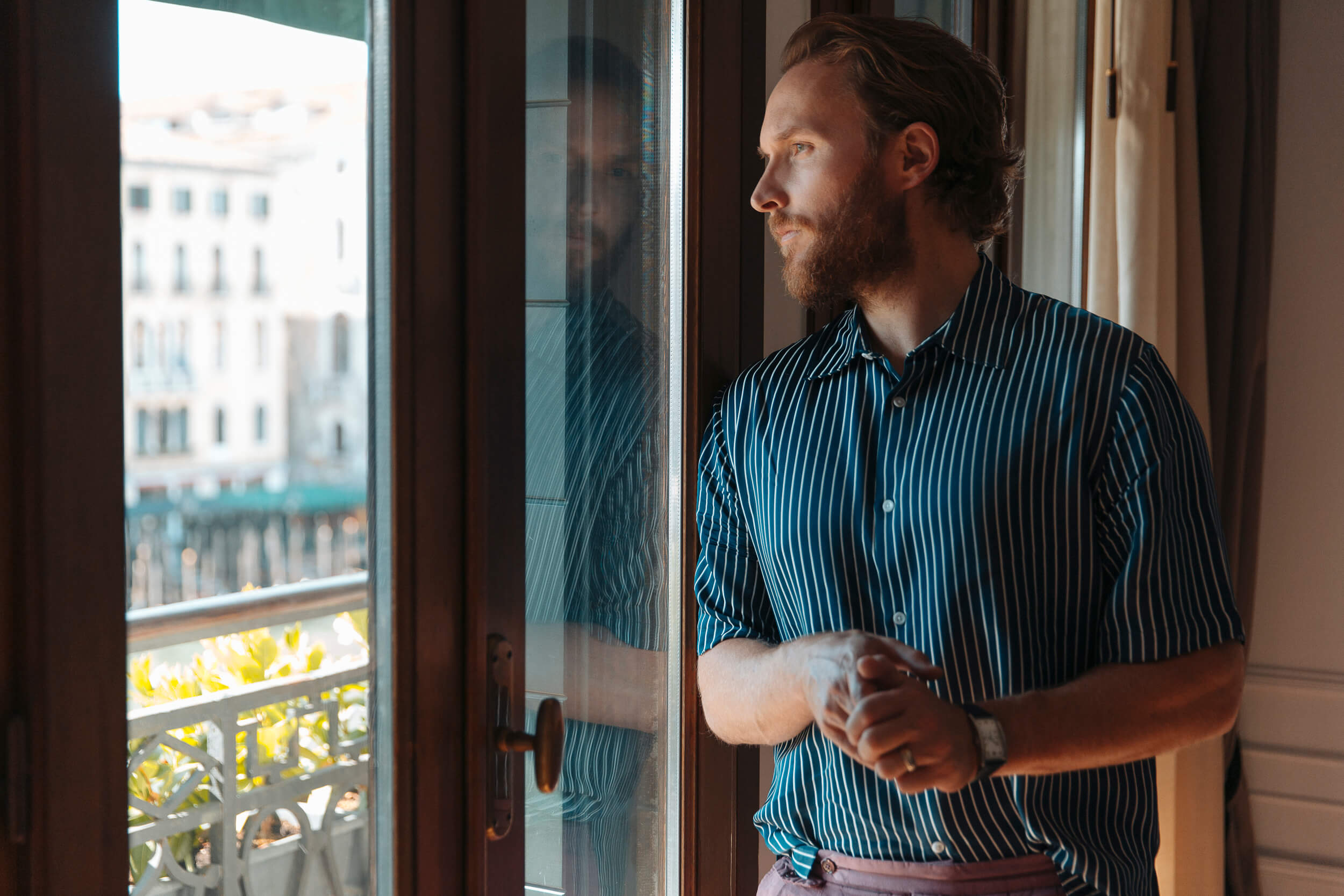
What does it mean to you to feel comfortable in your own skin?
I think it means being comfortable with the good, the bad, and the ugly. For a long time, I’ve just tried to chase comfort and happiness whenever I get nervous, I had a lot of social anxiety growing up, and I think the act of rebellion I was talking about as an actor is a part of that. It’s rebelling against the society where I grew up and trying to be different and honest and true to myself but also rebelling against all my anxieties and getting in front of people and trying to combat that.
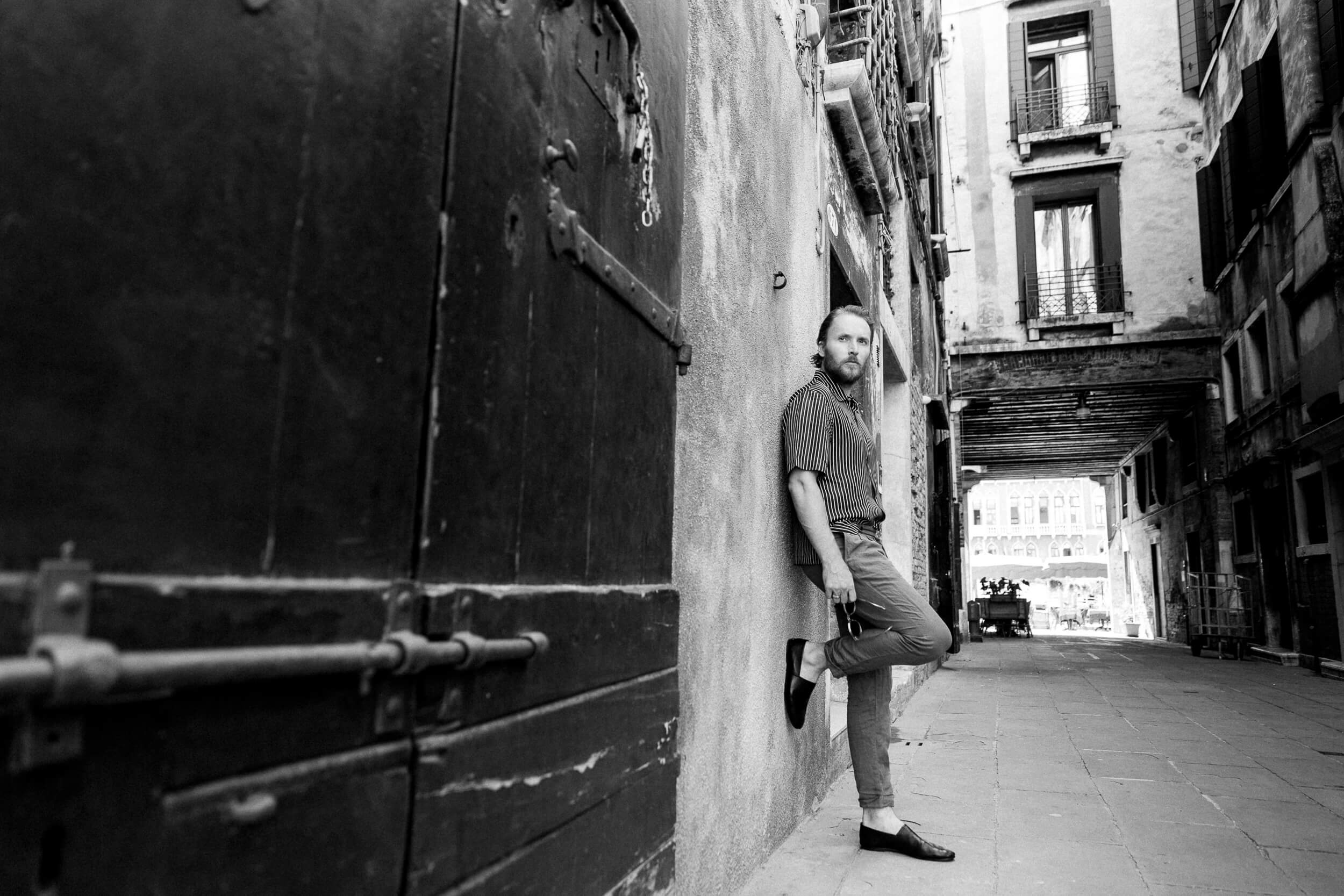
What’s your happy place?
It’s people.
With my family, with my beautiful wife, she is my happy place for sure. Being with friends. Italy, too, is a happy place for me, it has brought so much joy to my life. I was here in Venice in 2003 with a film, which was my introduction to Italy, and my parents kindly flew me over for the premiere because the film didn’t have a lot of money, but I got to experience the Venice Film Festival as a lead in a film. This place is surreal, it blows my mind every time I come here.
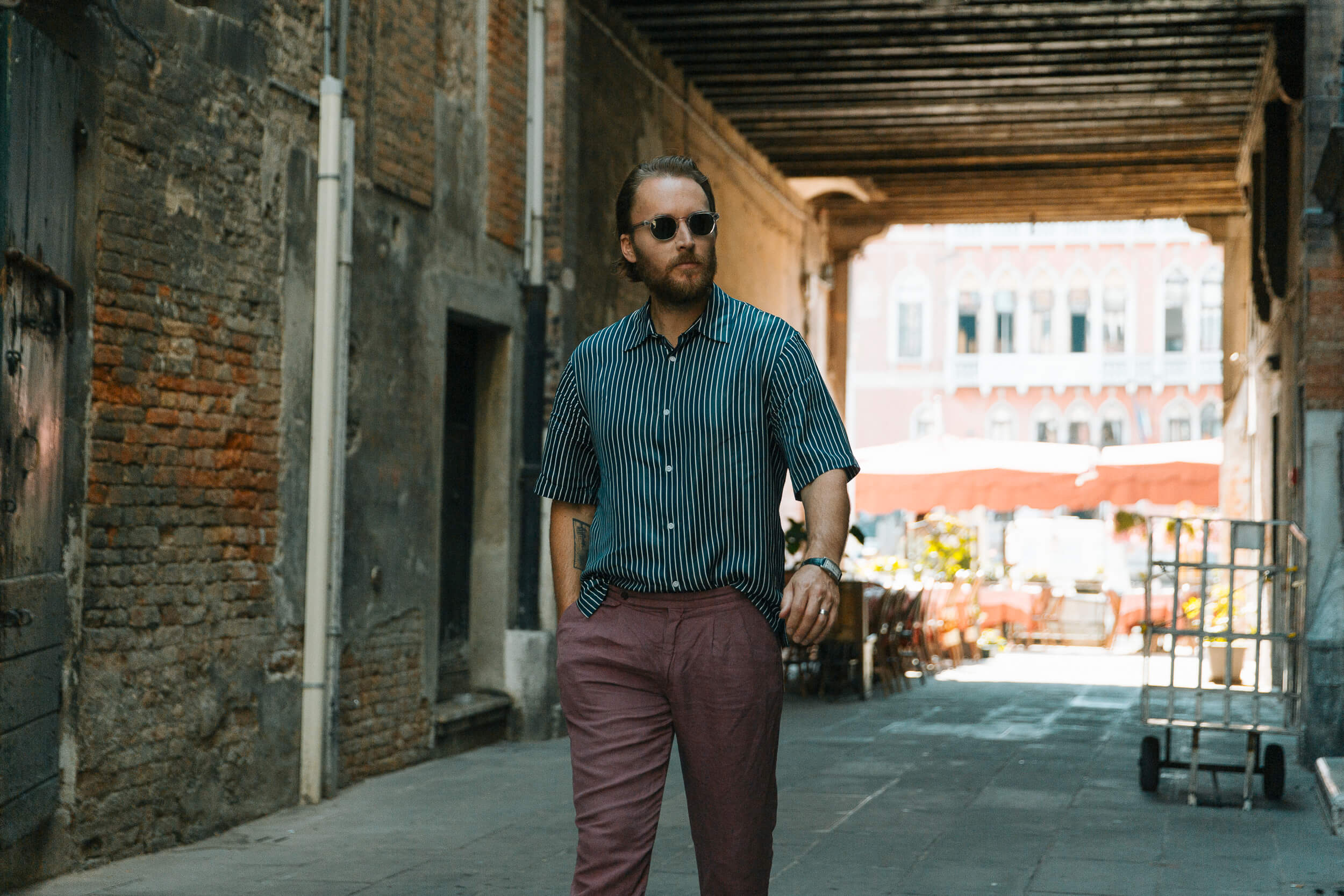
“It’s people”
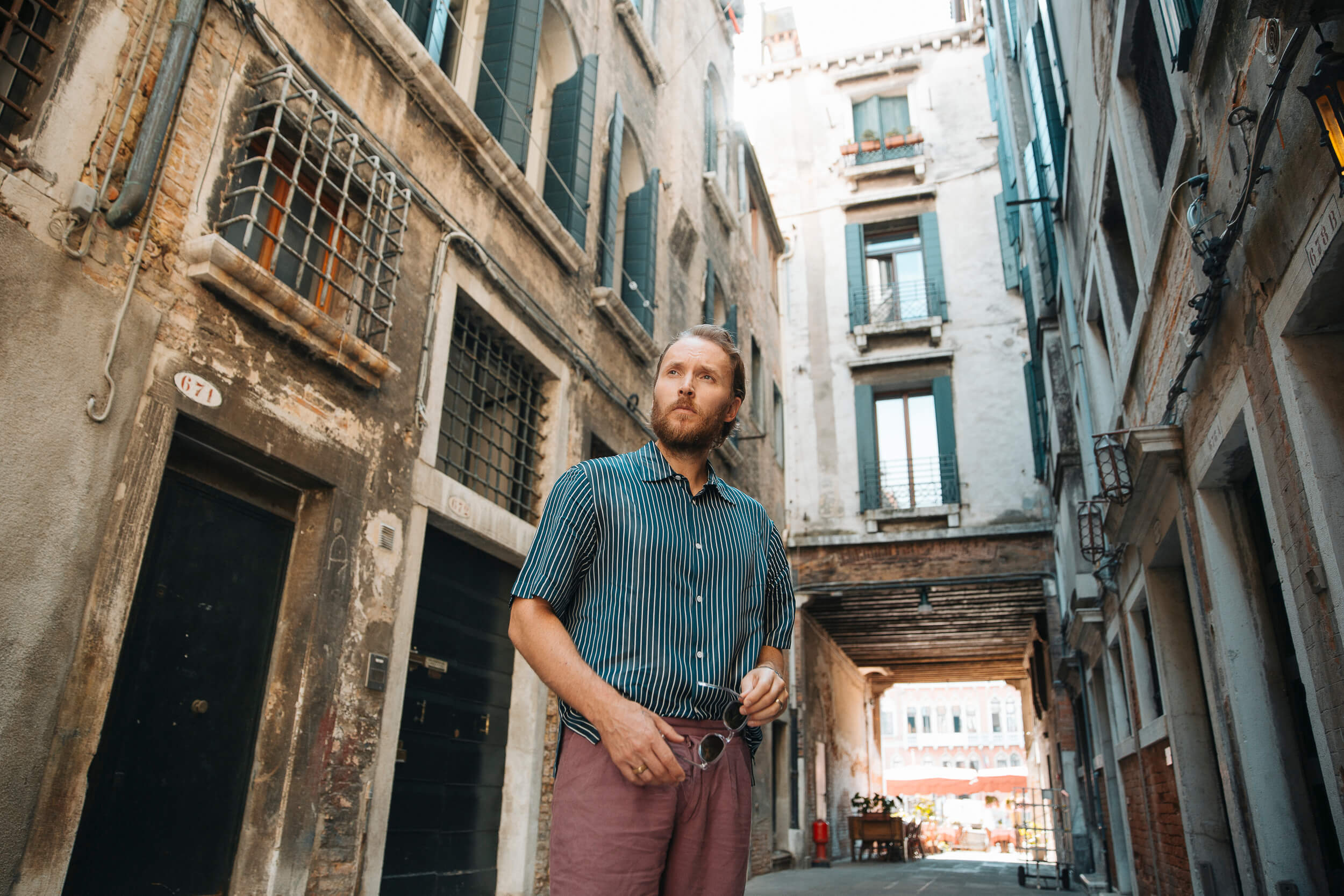
Photos by Luca Ortolani.
Grooming by Armani Beauty.





